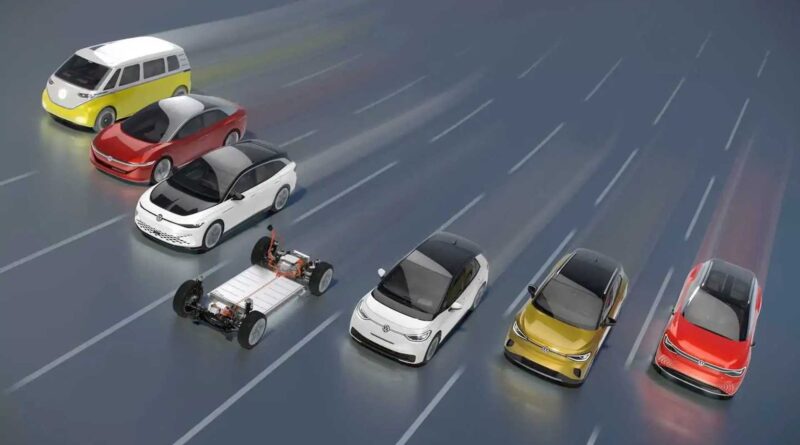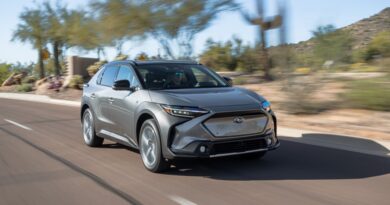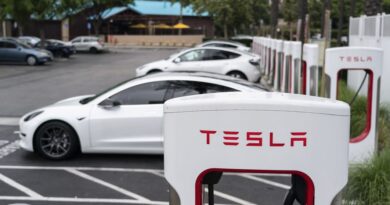Volkswagen Group Increased Global BEV Sales In Q1 2023 By 42%
The Volkswagen Group (which includes Volkswagen, Audi, Porsche, Skoda, Seat, Cupra, and more) reports 2,040,600 global vehicle sales during the first quarter of 2023 (up 7.5 percent year-over-year). Things are starting to improve, but the company has still a long way to achieve pre-lockdown levels (2.6 million units in Q1 2019).
Let’s now take a look at the battery-electric vehicle (BEV) sales, which are increasing much faster than general sales.
In Q1, Volkswagen Group’s all-electric vehicle sales amounted to 141,000 (up 42.1 percent year-over-year), which is 6.9 percent of the total volume (compared to 5.2 percent a year ago). It means that nearly one in nearly 15 new vehicles was all-electric.
The Q1 was a bit slower than Q3 (149,300) and noticeably slower than Q4 of 2022 (205,800), but sales usually increase throughout the year and reach new records in the fourth quarter. Sales of 200,000+ units per quarter are probably not far away.
For reference, in 2022, Volkswagen Group sold about 572,100 all-electric vehicles around the world (up 26 percent year-over-year), which was 6.9 percent of the total volume.
This year, there is a chance for 0.9-1.0 million units, although a lot depends on whether the German manufacturer will be able to accelerate production.
The medium-term goal is around 20 percent share by 2025, and roughly half of the total volume by 2030.
Europe remains the largest BEV market for the Volkswagen Group, with 98,300 units (up 68.1 percent year-over-year). That’s nearly 70 percent of the total volume.
In the United States, sales almost doubled to 15,700, but an interesting thing is what is happening in China. Sales decreased quite noticeably, by over 25 percent year-over-year to 21,500. That’s a very worrying sign – after all, China was the second-largest market for the group and the largest plug-in car market globally.
Sales in Q1 2023:
- Europe: 98,300 (up 68.1%)
- US: 15,700 (up 98.0%)
- China: 21,500 (down 25.4%)
- Rest of the world: 5,600 (up 37.1%)
- Total: 141,000 (up 42.1% year-over-year)
The Volkswagen brand (70,000 units) was responsible for around half of all the group’s BEV sales. The second biggest in the BEV segment is Audi (34,600). Skoda was the third brand with a five-digit result (12,400).
We covered each brand separately to better understand what is happening in the industry and links to the individual reports can be found below:
Sales in Q1 2023:
- Volkswagen (cars): 70,000 (up 31.2%)
- Audi: 34,600 (up 42.7%)
- Skoda: 12,400 (up 40.6%)
- Seat/Cupra: 9,200 (up 318%)
- Porsche: 9,152 (down 3.4%)
- Volkswagen (commercial vehicles): 5,500 (up 642%)
- other (MAN, Volkswagen Truck & Bus, Scania, Navistar): 250 (down about 40%)
- Total: 141,000 (up 42.1% year-over-year)
The group’s best-selling electric car, just like in 2022, was the Volkswagen ID.4 (counted by the manufacturer together with the ID.5 coupe version) at 41,900 units.
The Volkswagen ID.3 (23,600) is second best, but only slightly ahead of the Audi Q4 e-tron family (21,300).
Select BEV model sales (for which data are available) in Q1 2023:
- Volkswagen ID.4/ID.5 – 41,900
- Volkswagen ID.3 – 23,600
- Audi Q4 e-tron (incl. Sportback) – 21,300
- Skoda Enyaq iV (incl. Coupé) – 12,400
- Audi e-tron/Q8 e-tron (incl. Sportback) – 9,700
- Cupra Born – 9,200
- Porsche Taycan (all versions) – 9,152
- other models – 13,748
- Total: 141,000 (up 42.1% year-over-year)
Some of the models are very similar and offered by different brands. For example, the MEB-based crossover/SUV – Volkswagen ID.4/ID.5, Audi Q4 e-tron (incl. Sportback) and Skoda Enyaq iV (incl. Coupé) – together noted 75,600. That’s more than half of the total volume.
Similarly, the MEB-based compact hatchbacks: Volkswagen ID.3 and Cupra Born, together noted 32,800 units.
This leaves 32,600 units for all other BEVs sold by the Volkswagen Group in Q1 2023. That’s pretty interesting.
Source : Autonews.com






